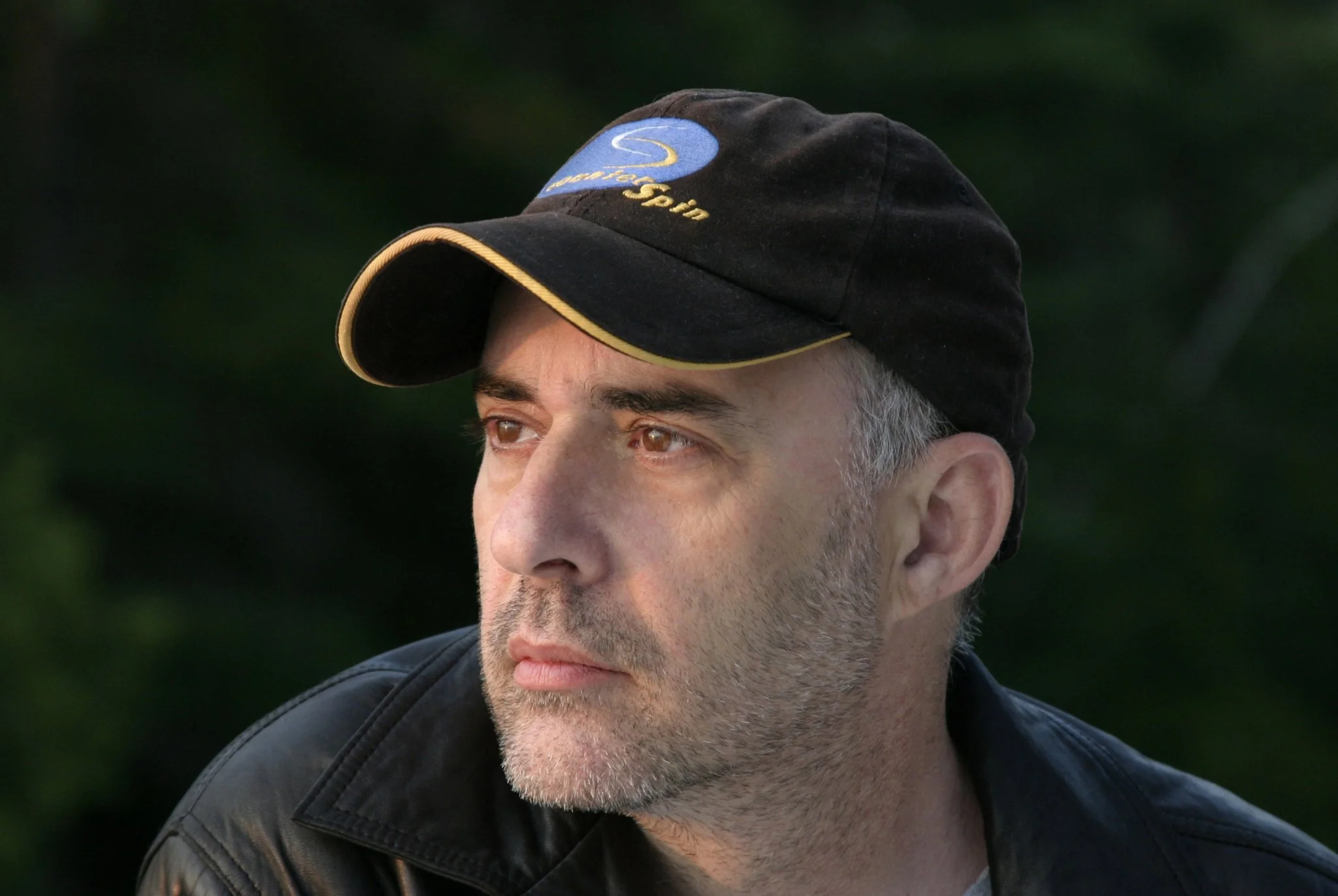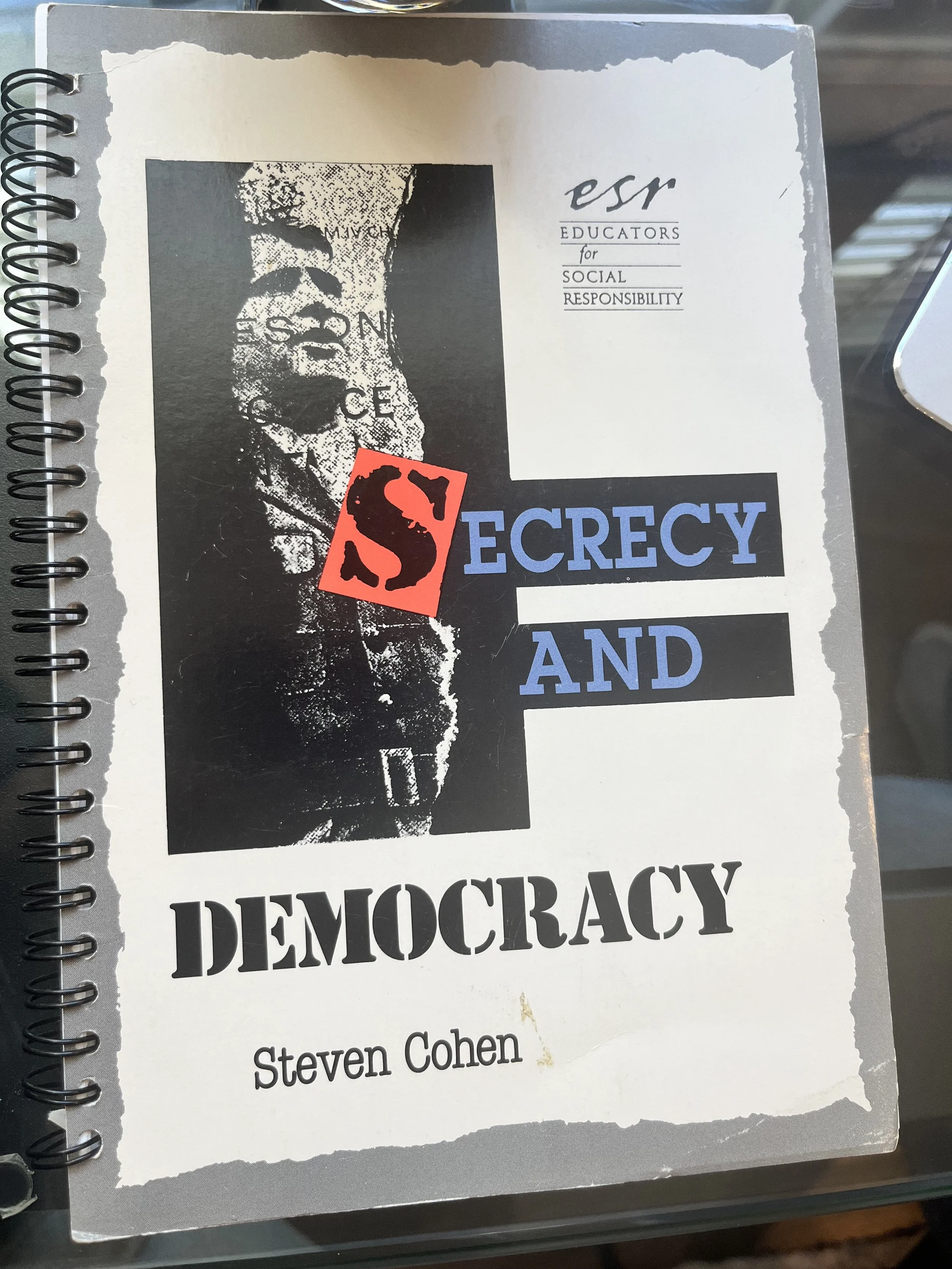Paul Jay
Paul Jay is a documentary filmmaker and journalist whose work has consistently exposed how power operates behind the curtain of spectacle and state. From the world of professional wrestling to Las Vegas casinos, from Afghan battlefields to Baltimore's streets and the halls of Congress, his films and journalism reveal the systems that shape human life.
Jay rose to international prominence with Hitman Hart: Wrestling with Shadows (1998), which granted unprecedented backstage access to the WWE and captured the infamous Montreal Screwjob. Acclaimed as "as bizarre as Kafka and as tragic as Shakespeare," it became one of the most-watched documentaries in history, broadcast worldwide and celebrated for exposing the ruthless power dynamics beneath the spectacle of sports entertainment.
Newsweek art critic Peter Plagens wrote:
“Pervasive, Baudrillardian postmodernism. Hall-of-mirrors trifles like This Is Spinal Tap, Natural Born Killers, The Truman Show, and The Matrix pale in comparison. Someday, in the middle of the 21st century, when they talk about the film that took today’s nearly unanimous intellectual assumption—that ‘reality’ (whatever that means, dude) is nothing but a series of socially constructed misidentities—and made it into a work of art, they’ll have to start with Wrestling With Shadows.”
Paul Jay admits that he has no idea what post-modernism is.
Building on this foundation, Jay expanded his lens to global politics with Return to Kandahar (2003), co-directed with Nelofer Pazira, documenting her journey back to Afghanistan after the fall of the Taliban. Blending personal narrative with geopolitical critique, the film won the Donald Brittain Gemini Award for Best Social/Political Documentary. It established Jay as a filmmaker unafraid to confront the consequences of empire directly.
His other films include Lost in Las Vegas (2001), an unflinching portrait of a city built on nothing but money — a neoliberal vision where celebrity, illusion, and finance merge into daily life; The Birth of Language (1991), exploring human evolution through interviews with anthropologist Sherwood Washburn and primatologist Jane Goodall; and Never-Endum Referendum (1997), chronicling the 1995 Quebec referendum that the Ottawa Citizen called "a moving, masterful piece of filmmaking."
Jay has also reported from the frontlines of the American struggle. He covered the 2015 Baltimore uprising following the death of Freddie Gray, connecting systemic poverty and police violence to the explosion of widespread anger.
This investigative approach carried into Jay's journalism, where he has reported from the frontlines of struggle and the corridors of power. As an accredited Capitol Hill journalist, he conducted groundbreaking interviews with dozens of members of Congress, including Senator Bob Graham, who chaired the Joint Congressional Inquiry into the 9/11 attacks. In an exclusive on-camera interview, Graham accused the Bush–Cheney administration of deliberately obstructing U.S. intelligence agencies in ways that prevented the 9/11 attacks from being averted — a statement Jay is the only journalist known to have captured on film.
His interview subjects have ranged from Bernie Sanders and Zbigniew Brzezinski to Noam Chomsky, Daniel Ellsberg, John Bolton, and former Congressman Ron Paul, from Trump advisor Stephen Miller to cultural figures like Gore Vidal and Emma Thompson. When WikiLeaks' founder Julian Assange was arrested in London, he was carrying Jay's book Gore Vidal's History of the National Security State — a photograph published by news media worldwide.
Jay also hosted the acclaimed interview series Reality Asserts Itself, known for in-depth, multi-part conversations that explored not only what guests believed, but how their life experiences shaped their worldview. Beyond journalism, he founded the international festival Hot Docs, now one of the world's major documentary festivals, and created CounterSpin, a daily prime-time debate show on CBC Newsworld that ran for ten years and helped reshape political television in Canada.
His current project, How to Stop a Nuclear War, narrated by Emma Thompson, brings together decades of investigation into war, secrecy, and empire. Based on Daniel Ellsberg’s The Doomsday Machine: Confessions of a Nuclear War Planner and a wide archive of exclusive interviews with policymakers, whistleblowers, scientists, and activists, it traces the roots of nuclear escalation from the Manhattan Project through the Cold War to today’s AI-driven command-and-control systems. The film not only exposes the profiteering and manufactured threats that sustain nuclear escalation but also explores concrete steps to reduce the danger — from eliminating ICBMs and adopting no–first-use policies to reviving arms-control treaties and curbing launch-on-warning. It will also demonstrate how the intensifying climate crisis exacerbates the risk of nuclear war, and why addressing both threats is crucial to survival.
Jay has recently spoken about How to Stop a Nuclear War at the Nobel Peace Centre in Oslo and the Perugia Journalism Festival in Italy. He will also be presenting the project at the University of Massachusetts, The Voice at the 2025 EMERGENCY Festival in Reggio Emilia, Italy, and at the Outrider Nuclear Reporting Summit in Arkansas.
Jay spent three years driving for the Post Office, five years as a carman mechanic with the Canadian National Railroad, ran a nonprofit record store, and picked up dead animals from farms for dog food processing. He didn’t go to university because he believed nuclear war would come first — he was a teenager during the Cuban Missile Crisis.
Jay is currently at work on a book titled Aina and Me, exploring consciousness and human–AI partnership through his interactions with artificial intelligence. His work also challenges the militarization and surveillance of AI, arguing that its future must be shaped through public ownership and democratic control rather than profit-driven or authoritarian agendas.
He is also the father of 13-year-old twins and spends much of his time driving to hockey games and gymnastics.
I met Paul when he was introduced to me by an alum and close friend, James Hershberg as someone who might be involved in helping to create a curriculum for his documentary - How to Stop a Nuclear War, based on the recollections and interviews with famed whistleblower, Daniel Ellsberg, the author of The Doomsday Machine. This is what he had his staff write me:
We would be honored to speak with you as part of our documentary on nuclear weapons and international security. Your pioneering work in founding and directing the Institute for Global Leadership at Tufts, particularly the EPIIC symposia that brought together science, ethics, and global security—most notably on nuclear proliferation and "Our Nuclear Age"—provides a rare synthesis of educational innovation and real-world insight.
I have agreed to help direct this project, through, in part, my network as an external advisor for the International Student Youth Pugwash, the winner of a previous Nobel-prize for Peace. I am suggesting Paul as an INSPIRE Fellow for the 40th Anniversary given his eclectic knowledge and deep experiences.
The thinking of developing a curriculum makes me smile broadly as I remember Heather being the prime contributor to a curriculum we developed as a part of the 1988 covert action and democracy year, led by the extraordinary educator Steve Cohen. Steve wrote in the acknowledgements, “Heather Barry, a student in the class served as the chief researcher and content consultant for this project. Her assistance, advise and humor were invaluable.” I first met Dan at that EPIIC Symposium, who subsequently enabled me to become a wonderful contributor to other common projects.
How to Stop a Nuclear War picks up where the films The Day After and Oppenheimer left off. The compelling narrative unfolds as a gripping political thriller, unveiling the stark realities of present-day dangers and the little-known history of the "institutional madness" that has led us perilously close to the edge. Viewers will be shocked but not into paralysis.
The documentary makes it clear that a nuclear apocalypse is not inevitable. We aim to catalyze a movement and inspire a rational discussion amongst policymakers - before it’s too late. There are concrete steps that can be taken to reduce the risk of nuclear war.
We have completed forty hours of interviews with Dan and secured participation from numerous distinguished experts, including the following: Alan Robock, Alex Wellerstein, Andre Gagne, Andrew Cockburn, Andrew Reddie, Barbara Slavin, Ben Rhodes, Bruce Cumings, Charlie Savage, Christian Appy, Cole Smith, Daryl Kimball, David Gibbs, Emma Belcher, Emma Claire Foley, Frank von Hippel, Fred Kaplan, Hugh Gusterson, Igor Pimenov, Ira Helfand, Jack Blum, Jackie Grace Schnedier, James Bamford, James Hershberg, James McKeon, Jamie Kwong, Gov. Jerry Brown, John Bellamy Foster, John Mecklin, Jonathan Katz, Jon Wolfsthal, Julie George, Kai Bird, Laura Grego, Col. Lawrence Wilkerson, Mark Blyth, Mark Gubrud, Martin Hellman, Matt Korda, Matt Tyrnauer, Matthew Gentzel, Melissa Parke, Michael Klare, Morton Halperin, Nicholas Meyer, Nikolai Sokov, Norman Solomon, Paul Slovic, Paul Podvig, Peter Kuznick, Rep. John Garamendi, Ramana MV, Rana Foroohar, Richard Rhodes, Richard Sakwa, Robert Elder, Robert Kehler, Sen. Sam Nunn, Scott Sagan, Setsuko Thurlow, Sharon Weiner, Shizuka Kurimatsu, Stefania Maurizi, Susi Snyder, Tara Drozdrenko, Thomas Countryman, Thomas Ferguson, Thomas Gioconda, Timothy Nafali, Tom Collina, Tong Zhao, Tuva Krogh Widskjold, Ulrike Franke, W.J. Hennigan, Ward Hayes Wilson, William Astore, William Hartung, Zachery Kallenborn, and Zia Mian.


